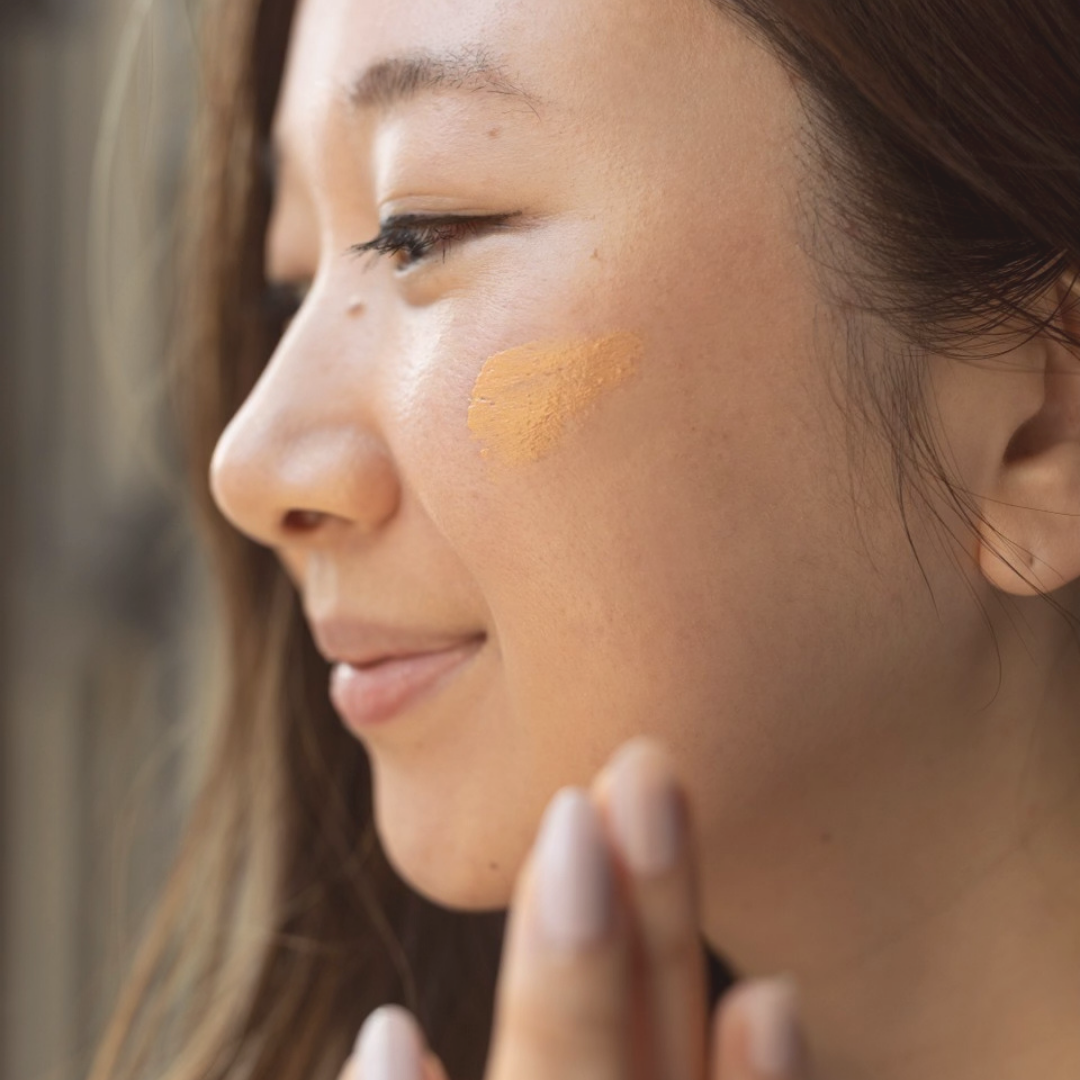Do you know how the seasons affect your body?
According to Traditional Chinese Medicine, there are five seasons: winter, spring, summer, later summer and fall. TCM teaches that in order to have a more balanced mind and body, we must live in accordance with these seasons. This means that during each one, there are certain foods to eat and certain practices to follow.
With the warmer months around the corner, let’s talk about Summer Heat. This is a condition in TCM that can happen when it’s extra hot out, essentially your body overheats.
Gua sha, an ancient healing practice from TCM, can help address Summer Heat’s typical symptoms such as irritability, headaches or dizziness. With the right technique, this practice can help you feel more energized and at ease after one too many long days under the sun.
Want to learn how to thrive in the summer the TCM way? Join us on Friday, June 18 3-3:45p EDT for a workshop on TCM, nutrition and Gua Sha for the summer with Dr. Rachele Lam, a licensed TCM doctor, acupuncturist and herbalist.
Your virtual seat includes:
-A 45 minute workshop focused on TCM summer nutrition and practices, including a demo on gua sha techniques for summer heat
-A box of Earthwise Beauty Chrysanthemum Herbal Tea (plus organic dried goji berries to pair with it)
-A handcrafted Gua Sha Face & Body Oil specifically prepared for this workshop. With a base of organic sunflower and meadowfoam oils and our light, floral Over the Moon aroma, this blend makes gliding your tool easy and effortless from head to toe!
-Option to add on our Pink Moon Rose Quartz Gua Sha Tool
To get the most out of your experience, you’ll need a gua sha tool. Please add one to your kit if you don’t have one at home!
Rachele’s one-of-a-kind workshop is $50, with a gua sha tool it is $78.

Rachele is a licensed acupuncturist and herbalist in San Francisco, and founder of Fountyn Acupuncture. Her healing practice is nurturing and empowering, and centers around women’s health, skin, digestive issues, stress and fertility. Rachele sees patients at her acupuncture studio in San Francisco and online. She is also involved with oncology and acupuncture research at the UCSF Osher Center.
Previously, Rachele had a career in technology. Faced with a series of crippling, stress-related health issues, she turned to TCM to heal and ground herself. Wanting to share the transformational effects of this medicine, she decided to change careers and use Chinese medicine to help others in need of support and self-care.
Chinese medicine is deeply rooted in Rachele’s culture and upbringing, and she hopes to share it in a way that is approachable and fun.
Below, a Q+A with Rachele and a sneak peek into what she’ll be teaching you!
How did you find your way into Traditional Chinese Medicine (TCM)?
I have always been interested in Chinese medicine since I was a child. TCM theory is so grounded in everyday Cantonese cooking and lifestyle. From a young age I started learning some of the basics and applying them to the way I ate, dressed, slept, showered. Yes, TCM is medicine, but it is also a way of life.
I also grew up going to see a Chinese medicine doctor for a variety of health issues and experienced first hand what holistic healing truly is. I witnessed TCM allow my grandfather with stage-4 cancer to live a far longer and higher quality life than was ever expected.
Chinese medicine pulled me out of a personal health crisis in my early twenties due to burnout from working at a fast-paced tech company. It helped me realign with my own body and feel energized and grounded again. The impact that my acupuncturist at the time had on me was so great, that I ultimately decided to leave my job so that I could also help others in this way.
What is the main difference to you between TCM nutrition and western nutrition?
Western nutrition revolves a lot around describing foods based on their protein, minerals, fat, vitamin or calorie content. Foods are broken down to their most basic parts, and then analysed under a microscope.
Often we'll hear about different diets (keto, whole 30, etc.) that focus on how the body breaks down and metabolizes food. Whereas, TCM nutrition focuses more on the energetic properties of food, and the physical or energetic responses the body has when you eat it.
Does it make you sweat? Feel phlegmy or lethargic? Does it make you bloated or feel cold? Does it break you out?
Furthermore, in TCM nutrition, there are never any foods that are characterized as "healthy" or "unhealthy" (except excessively fried or sweet foods). Rather each person is unique in how their body responds to the different energetics of foods, and needs to eat specific to their body constitution.

How do the seasons affect our bodies according to TCM?
A key concept in Chinese medicine is that our bodies are a reflection of the environment around us. Intuitively, this makes sense.
When the daylight hours are longer and warmer, we tend to have more energy or stay up later. When the days are shorter and colder, we may tend to stay inside, rest more and hibernate.
This is just one example, but the environment and seasonal changes affect our bodies in so many different ways. Chinese medicine theory states that if we stay in harmony with our environment, then we will have a healthy life.
In what ways does using a gua sha tool help treat discomfort during hot weather?
Gua sha is a great way to release heat in the body. It’s used traditionally on the back to relieve conditions like fever, restlessness or heat stroke.
Do you have some TCM tips as we prepare to enter the warmer months?
An easy way to better align with the seasons is to eat foods that are in season and appropriate to that time of the year. I’ll go more in detail during the workshop about which foods can help keep you cool!
Also, it's important to not eat too many cold or iced foods, (even though I know that ice cream truck down the street is calling ya!) Cold foods slow down digestion and can cause things like bloating and stomach aches. Overtime, it weakens your digestive function.




